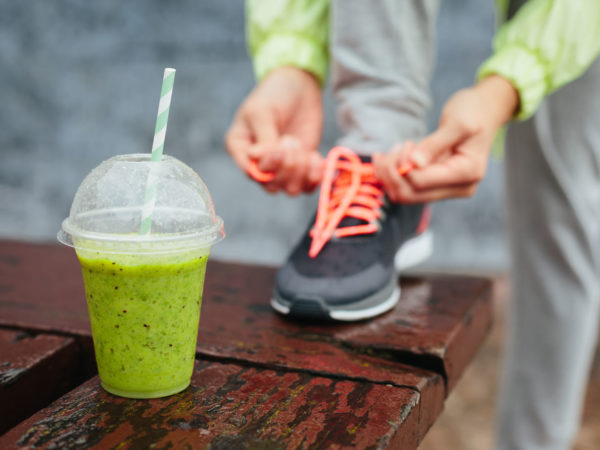High Blood Pressure, Hypertension

What is high blood pressure?
High blood pressure – hypertension – refers to blood pushing against the walls of the arteries with chronically elevated force. Blood pressure that rises above normal levels and remains high can lead to serious health problems including heart attack, heart failure, stroke and kidney failure.
Blood pressure is measured in millimeters of mercury (mmHg). The top number, known as the systolic pressure, represents the pressure within the arteries when the heart contracts while pumping blood. The bottom number, diastolic pressure, represents the pressure in the arteries when the heart relaxes between beats and fills with blood.
Normal blood pressure is defined as less than 120 over less than 80. A person whose blood pressure runs between 120-129 over less than 80 is said to have elevated blood pressure, a classification that is used to further encourage taking preventive diet and lifestyle measures. Stage 1 hypertension is diagnosed for those with systolic numbers between 130 and 139 OR diastolic numbers between 80 and 89. Systolic numbers that are 140 or over OR diastolic at 90 or over is considered Stage 2 hypertension, which is a serious risk factor for stroke and other cardiovascular events.
Blood pressure changes repeatedly throughout the day; it is lowest during sleep and increases upon waking. It also goes up when a person is excited, nervous or physically active.
Hypertension is the most common risk factor for cardiovascular disease in the U.S., affecting one in three adults, according to the National Heart, Lung and Blood Institute (NHLBI). Untreated hypertension can lead to arterial damage, which in turn can result in impaired blood flow to vital organs, potentially leading to heart attack, kidney failure, stroke, eye damage or aneurysm. Fortunately, once identified, hypertension often can be controlled to some degree with changes in diet and lifestyle.
What are the symptoms of high blood pressure?
Hypertension is often called a “silent killer” because even when severe, it often has no obvious symptoms. Some patients report headaches, dizzy spells, or nosebleeds, but these symptoms usually don’t occur unless there has been a rapid, acute change in blood pressure, or until blood pressure has reached dangerous levels.
What are the causes of high blood pressure?
The risk of developing high blood pressure increases with age as arterial walls lose their elasticity. There can be many contributing factors, yet doctors often cannot identify an exact cause for high blood pressure, in which case the person is said to have “essential hypertension.” Potential contributing factors include but are not limited to:
- By chronically activating the sympathetic nervous system, stress can cause the arteries to maintain a more rigid tone.
- Excessive salt consumption: The sodium in salt can cause excess water retention, which expands blood volume and ultimately increases blood pressure.
- A diet low in calcium, magnesium and potassium. These micronutrients help regulate the muscular structures of arterial walls and imbalances can influence arterial tone.
- Insulin resistance: This condition can increase blood pressure by various mechanisms including increased systemic inflammation and sodium retention as a result of kidney damage.
- Excessive alcohol intake, defined as drinking in excess of two drinks daily for men under age 65, or in excess of one drink daily for women or men over age 65.
- Being overweight. The heart has to work harder to maintain circulation through excess adipose tissue.
- Some prescription drugs, including steroids, birth control pills, decongestants, NSAIDS and diet pills can raise blood pressure. Some over-the-counter medicines, such as those containing licorice root, ephedra, guaraná, kola nut, yerba maté, ginseng and yohimbe, may also raise blood pressure.
Some health problems including chronic kidney disease, thyroid disease and sleep apnea may also cause blood pressure to rise.
According to the NHLBI, high blood pressure is more common, occurs at an earlier age, and is likely to be more severe among African Americans than in Caucasians or Hispanic Americans. Even young children can develop high blood pressure, but these cases often go undiagnosed. A CDC study estimates that 1 in 25 youth ages 12 to 19 have hypertension, and 1 in 10 has elevated blood pressure. The principal cause is the ongoing epidemic of childhood obesity. It’s estimated that up to 30 percent of overweight and obese children have high blood pressure and that the problem is likely to worsen as the epidemic continues.
In some cases, blood pressure temporarily increases when it’s taken in the doctor’s office. This is due to a patient’s anxiety and is probably a conditioned response to seeing a doctor (“white coat hypertension”) and, perhaps, to what physicians have told patients about the dangers of hypertension during previous visits. The best way to determine whether the elevated readings obtained in the doctor’s office are solely the result of white coat hypertension is to check your blood pressure at home with a well-calibrated blood pressure monitor (they are widely available). If you decide to do this, check your blood pressure at least twice a day, at random times, and keep a log of your results to share with your doctor.
How is high blood pressure diagnosed?
Most people are familiar with blood pressure testing, which is performed using an inflatable arm cuff and a pressure-measuring gauge. As mentioned earlier, if your blood pressure is in the range of 120-129 mg Hg over less than 80 mmHg, a diagnosis of “elevated blood pressure” is considered. Blood pressure readings that range from 130-139 mmHg systolic OR 80-89 mmHg diastolic signal stage 1 hypertension. More severe hypertension – stage 2 – is defined as a reading of 140 mmHg or higher or a diastolic reading of 90 mmHg or higher. Unless your blood pressure is extremely high, or you are having symptoms related to high blood pressure, your physician will probably ask you to return in a few days or weeks for a repeated set of blood pressure measurements before instituting therapy. A diagnosis of high blood pressure should not be based on a single high reading.
Several medical organizations, including the American Heart Association, recommend that anyone who has high blood pressure invest in a home monitor to perform regular blood pressure checks on their own and monitor response to treatment. This was proposed because only one-third of the 72 million Americans who have high blood pressure have it under adequate control. Frequent monitoring at home also provides doctors with documentation of your blood pressure outside the office and the effectiveness of prescribed medication, as well as the impact of lifestyle measures such as weight loss, exercise, and limiting salt intake.
What is the conventional treatment?
Conventional treatment usually begins with recommendations to lose weight, get regular exercise, and to quit smoking. Even a 10 percent weight loss can sometimes bring high blood pressure under control. Limiting intake of caffeine (in coffee, tea, sodas, and energy drinks) and alcohol can also help.
Medication usually is prescribed if blood pressure readings consistently exceed 140/90 (or 130/80 for diabetics or those with kidney disease), despite lifestyle changes. But even when drugs are prescribed, physicians usually recommend adhering to a low-salt diet that includes lots of vegetables and fruit, exercise, and stress reduction techniques, all of which can help keep the required dosage of medication to a minimum.
There are a number of different types of drugs used to treat high blood pressure. Here’s a rundown and brief descriptions of how each type works:
- Diuretics: Help the kidneys to flush excess water and salt from the body.
- Beta blockers: Help the heart beat more slowly and less forcefully, and also relax arterial walls, together resulting in less pressure within blood vessels.
- ACE inhibitors: ACE stands for angiotensin-converting-enzyme. This class of drugs inhibits production of the hormone angiotensin II, which normally causes blood vessels to narrow, thereby increasing the pressure inside.
- Angiotensin II receptor blockers: Protect blood vessels from the hormone angiotensin II so that the blood vessels can relax and widen.
- Calcium channel blockers: Prevent calcium from entering the muscle cells of the heart and blood vessels, allowing both to relax.
- Alpha blockers: Reduce nerve impulses that tighten blood vessels allowing blood to flow more freely.
- Alpha-beta blockers: Reduce nerve impulses and slow heartbeat.
- Nervous system inhibitors: Increase nerve impulses from the brain to relax and widen blood vessels.
- Vasodilators: Relax muscles in blood vessel walls.
Conventional physicians are also likely to recommend the DASH diet (Dietary Approaches to Stop Hypertension), developed at the NHLBI based on a large-scale study that identified the foods that affect blood pressure. It emphasizes generous amounts of fruits and vegetables and low-fat or fat-free dairy products that provide adequate calcium. The diet is also relatively low in fat and sodium. DASH researchers have shown that diets rich in potassium, calcium and magnesium, and low in sodium (2,400 mg or less), play an important role in blood pressure control.
In addition to checking your blood pressure, a physician may recommend a urinalysis, an electrocardiogram (ECG) to evaluate the electrical activity of your heart and perhaps other tests for signs of heart disease.
What therapies does Dr. Weil recommend for those with high blood pressure?
To lower blood pressure naturally, Dr. Weil recommends the lifestyle measures and nutritional supplements described below. If those changes don’t help, he recommends you seek guidance from your physician about prescribing one or more of the conventional medications described above. Here are Dr. Weil’s tips on how to lower your blood pressure.
- Limit caffeine intake.
- Limit alcohol intake.
- Avoid processed foods.These are the biggest sources of sodium in today’s diet.
- Maintain optimal weight.Even losing a small amount of weight can lower blood pressure.
- Meditation, yoga, breathing exercises and biofeedback can help lower blood pressure. Practice the 4-7-8 breathing technique
- Don’t smoke.
- As little as 30 minutes of moderate exercise a day, such as walking, can help lower blood pressure.
- Check your medicines.Discuss your current medications and their risks of increasing blood pressure with your doctor.
Nutrition and Supplements For High Blood Pressure
Dr. Weil recommends the DASH diet and the nutritional measures listed below:
- Eat eight to 10 servings of vegetables and fruit per day.
- Limit animal proteinto six ounces per day.
- Limit salt intake.If you are salt sensitive or have a family history or hypertension, reducing salt to about one teaspoon a day may help control your blood pressure.
- Use garlic. It has a modest effect on blood pressure, potentially helping to relax blood vessels.
- Consume four to five servings of nuts, seeds and dry beans per week. This is equivalent to two tablespoons of nuts or seeds, or 1/2 cup cooked dried beans.
- Eat plenty of fish.Include at least three servings of fish a week, emphasizing cold-water fish such as wild Alaskan salmon and sardines, which are rich in omega-3 fatty acids. Take fish-oil supplements if you cannot get enough omega-3-rich foods.
- Take calcium and magnesium.Inadequate intake of both of these minerals has been associated with high blood pressure. Women should get between 1,000 and 1,200 mg of calcium a day from all sources, while men need no more than 500-600 mg daily from all sources and probably do not need to supplement.
- Take vitamin C.This antioxidant vitamin has been shown to lower blood pressure in people with mild to moderate hypertension.
Source
adc.bmj.com/content/101/11/998https://www.cdc.gov/bloodpressure/facts.htm
cdc.gov/bloodpressure/youth.htm
ncbi.nlm.nih.gov/pmc/articles/PMC6179812/https://www.health.harvard.edu/heart-health/key-minerals-to-help-control-blood-pressure
ncbi.nlm.nih.gov/pmc/articles/PMC8109864/
grassrootshealth.net/blog/daily-magnesium-supplementation-shown-reduce-arterial-stiffness/
Originally Posted August 2006. Updated November 2022.












